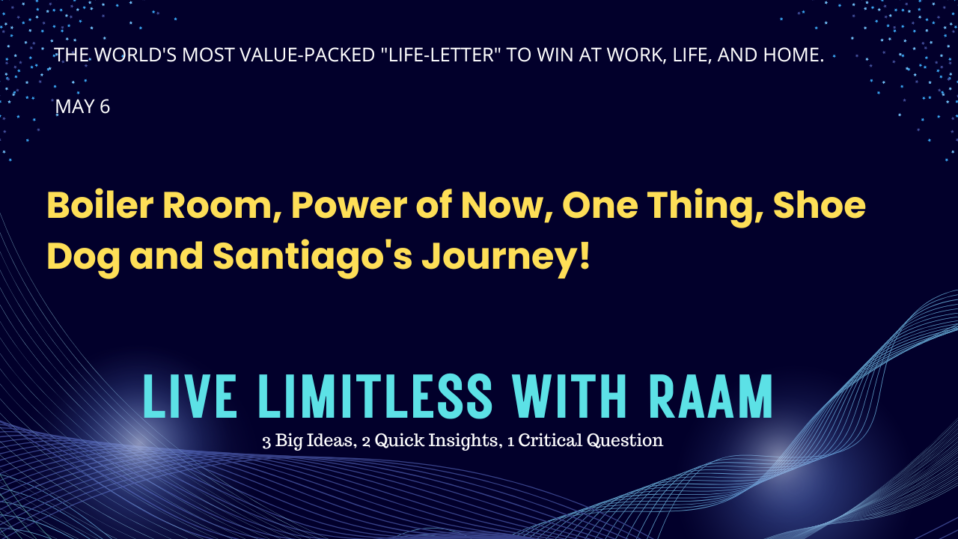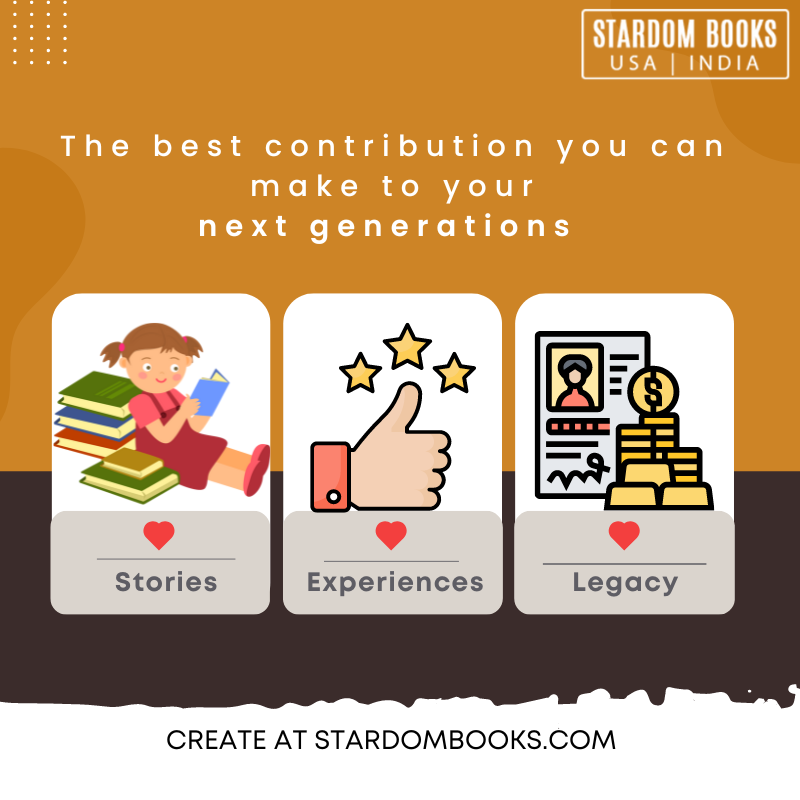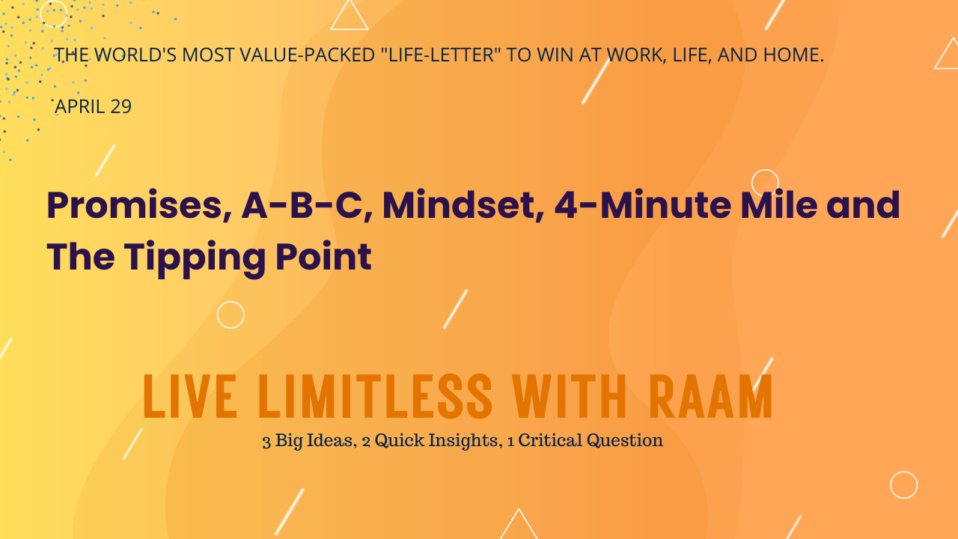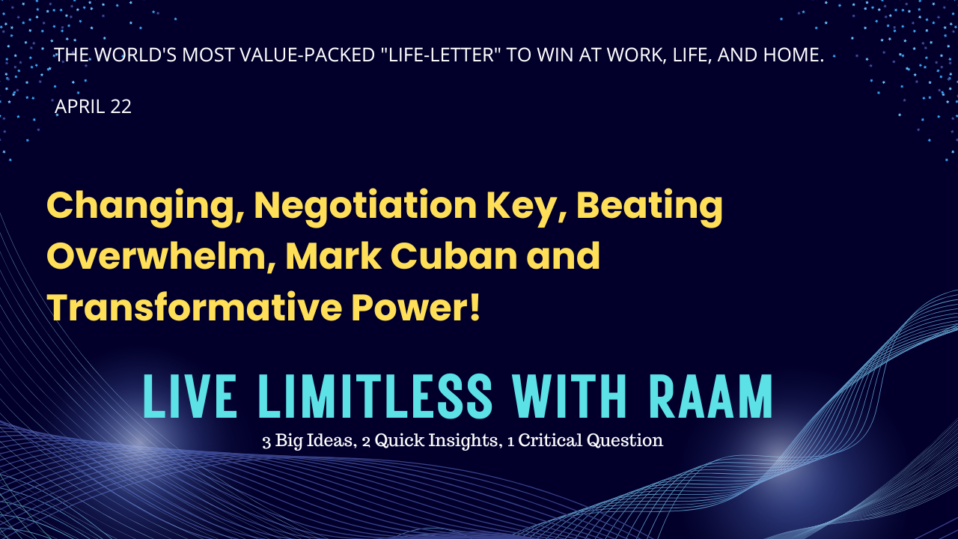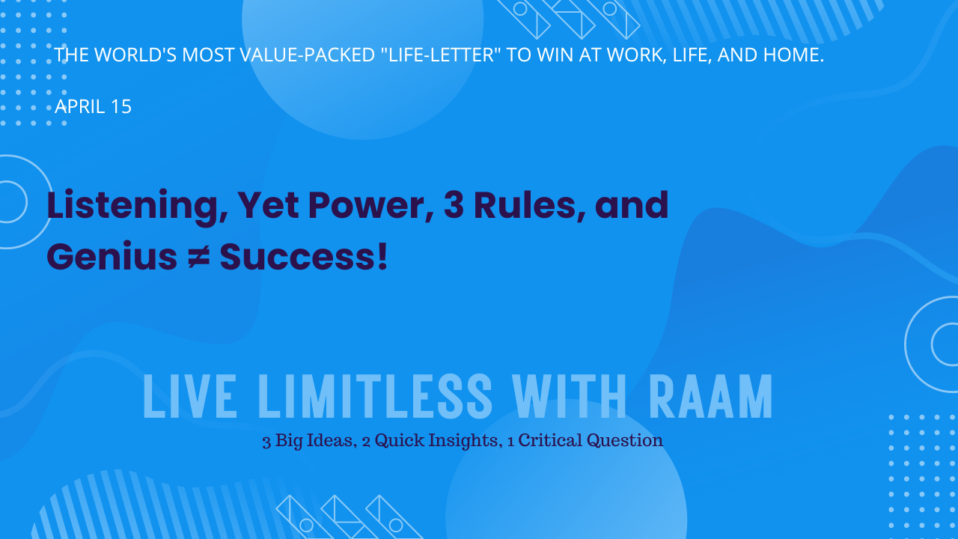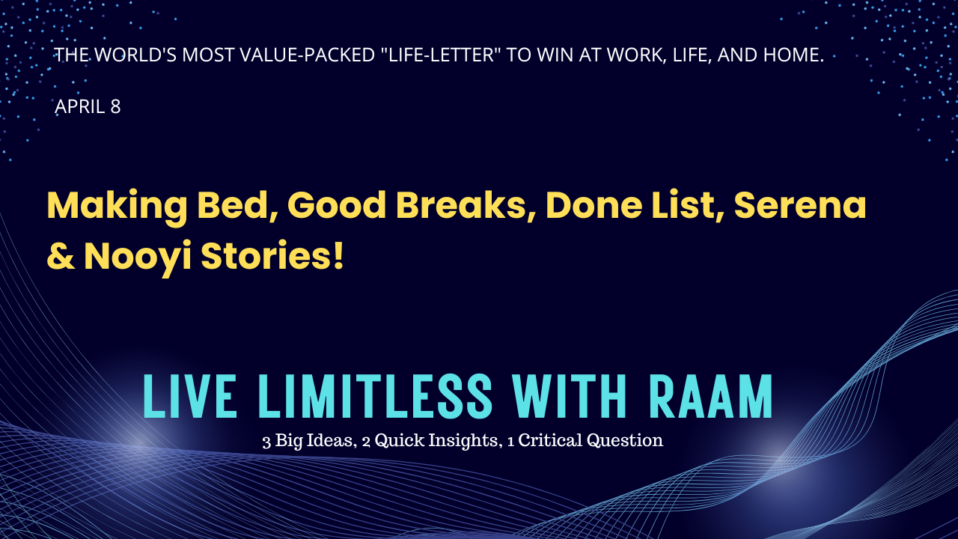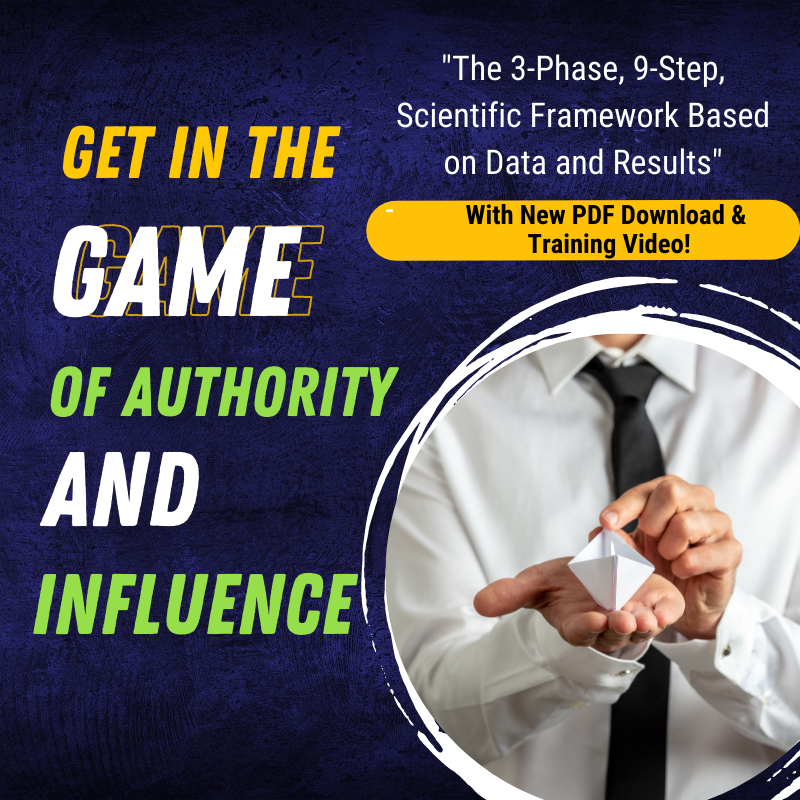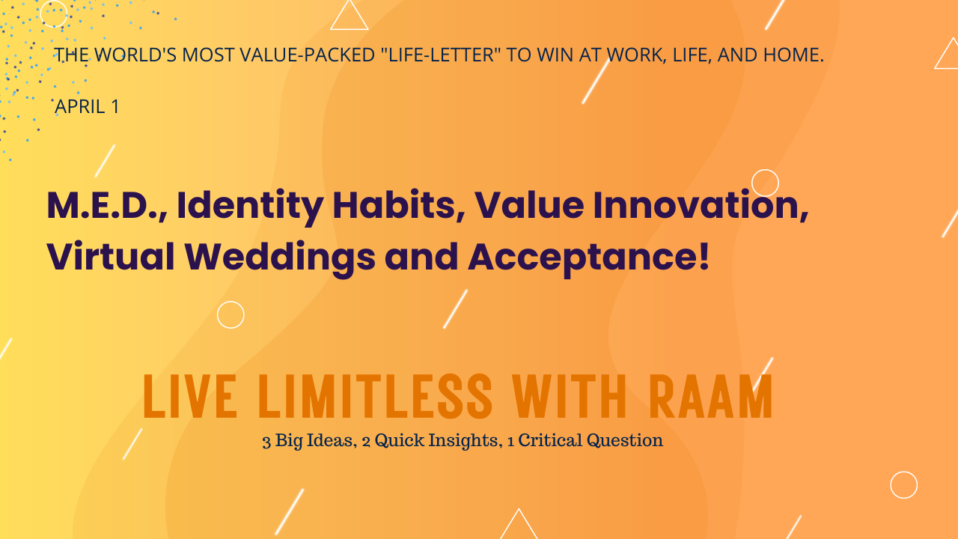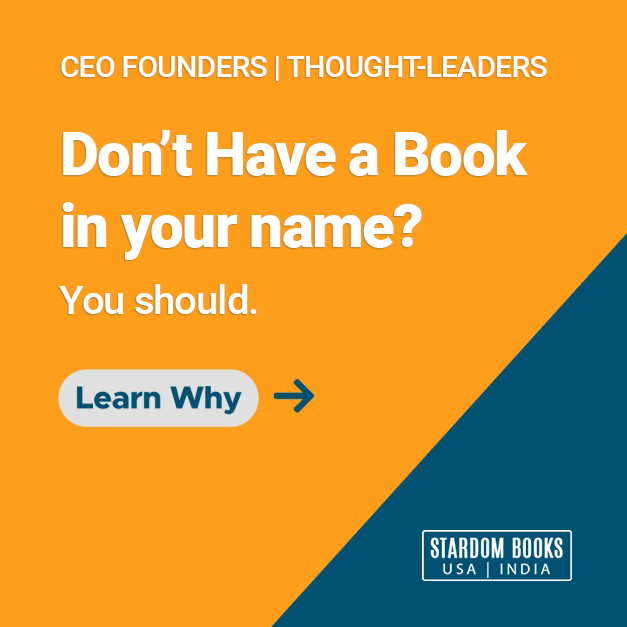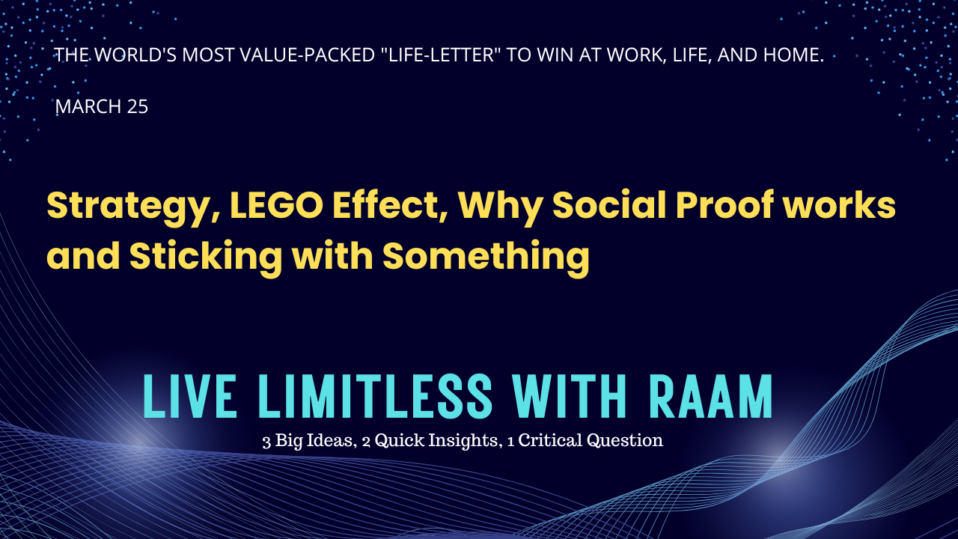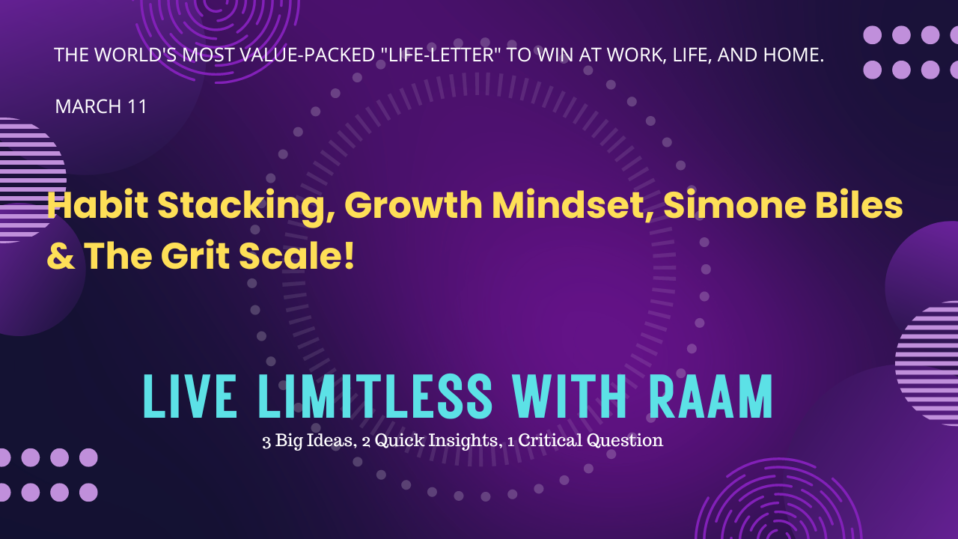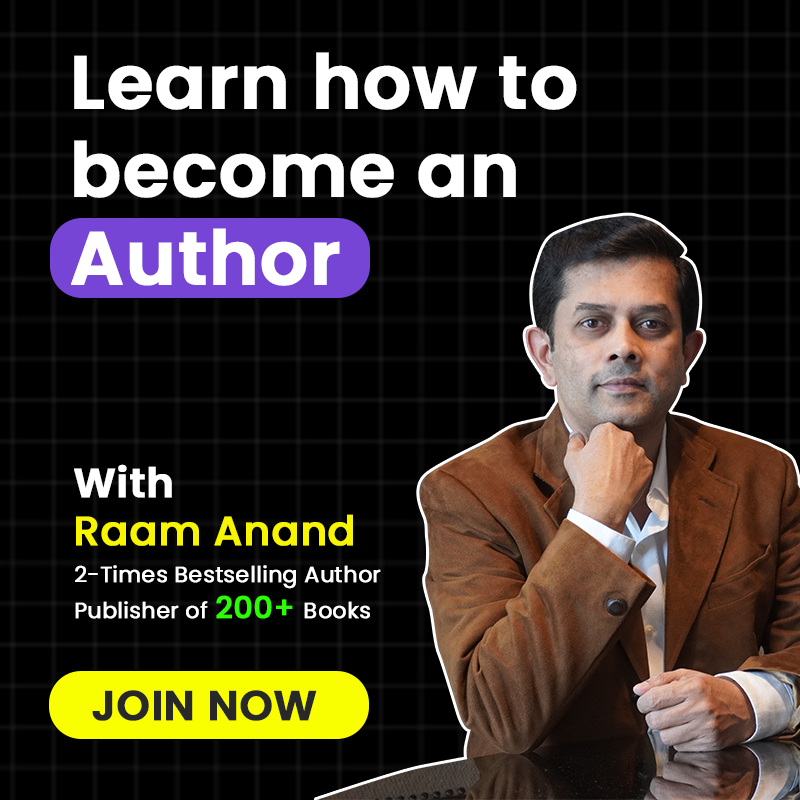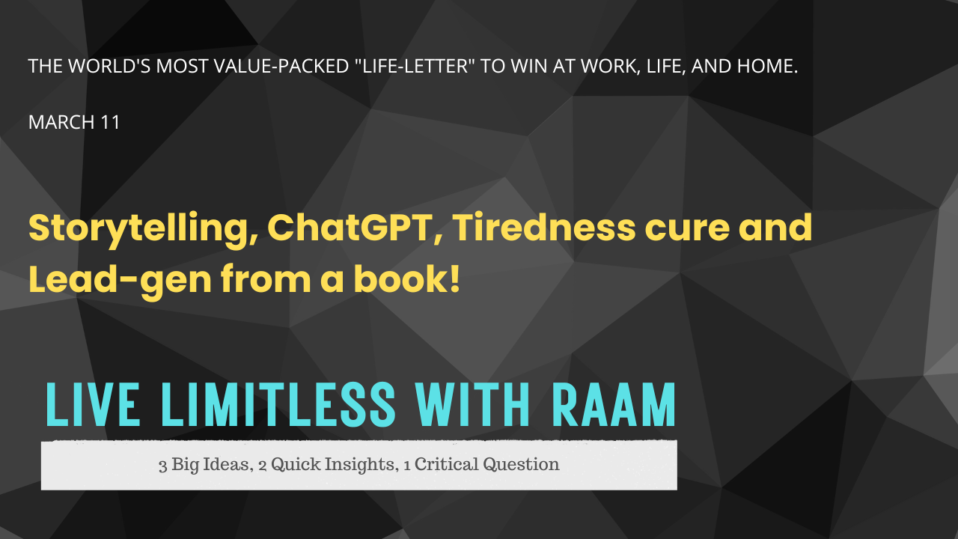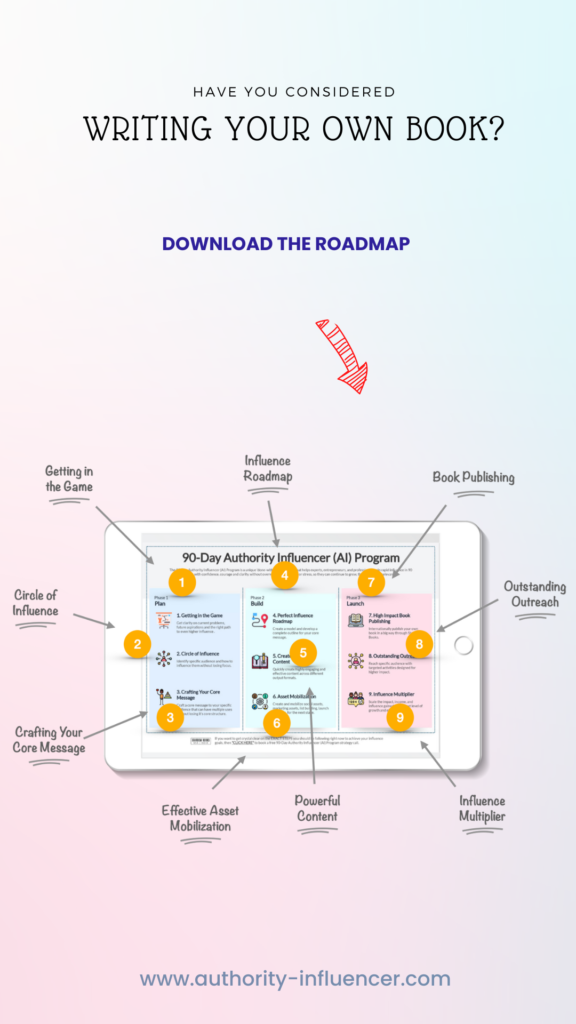Live Limitless with Raam
“The World’s Most Value-packed Newsletter Life-letter to WIN at Work, Life, and Home” with:
3 big ideas, tips or strategies
2 stories, quotes or case-studies
1 critical question to ask yourself
Live Limitless: Time, GTD Method, Finding Meaning, and the Netflix Story!
read on LIFELETTER.RAAMANAND.COM | MAY 13, 2023
____________
3 Big Ideas, Tips or Strategies for this week
1. Time is NOT Your Most Valuable Asset
Worse yet, your Time actually has ZERO value. To anyone.
If it did, you could just show up and pass out.
No, you’re paid for your presence…
And how present you are is a matter of how focused you are.
Focus is your most valuable asset.
2. The Power of Finding Meaning
In “Man’s Search for Meaning” by Viktor E. Frankl, the author, a Holocaust survivor, shares his experiences in Nazi concentration camps. Frankl observed that those who could find purpose or meaning in their suffering were more likely to survive. He himself found purpose in the thought of reuniting with his wife and in his work as a psychiatrist.
The story teaches us the power of finding meaning in the face of adversity. Even in the most brutal circumstances, having a sense of purpose can provide the strength to endure.
3. The GTD Method
In the nonfiction book “Getting Things Done” by David Allen, a practical framework for managing tasks effectively is introduced, known as the GTD method. The GTD method is composed of five steps:
Capture: Collect what has your attention. Write, record, or gather all tasks and ideas that come to mind in a trusted system.
Clarify: Process what it means. Decide whether each item is actionable and, if so, the next action required.
Organize: Put it where it belongs. Categorize each item (e.g., to-do, reference, trash) and set reminders for when actions need to be done.
Reflect: Review frequently. Look over your lists regularly to determine what to do next and to keep your system updated and functional.
Engage: Simply do. Use your system to take action with confidence.
This GTD method provides a clear and effective way to manage workload, reduce stress, and increase productivity.
_____________
2 Stories, Quotes, or Case-Studies for this week
1. Albert Einstein
“The important thing is not to stop questioning. Curiosity has its own reason for existing.”
This quote highlights the importance of nurturing curiosity and the pursuit of knowledge. Einstein encourages us to keep questioning, keep learning, and to never let our curiosity wane, as it is the driving force behind innovation and understanding.
2. The Netflix Story
In the early 2000s, Netflix was primarily a DVD-by-mail service and faced significant competition from Blockbuster, a giant in the movie rental industry. In 2000, Netflix’s co-founder Reed Hastings approached Blockbuster with a proposal to sell Netflix for $50 million, but Blockbuster declined.
Instead of giving up, Netflix decided to innovate. They shifted their business model from DVD rentals to streaming services, capitalizing on the growing broadband internet usage. By continually innovating and adapting to changing consumer behavior, Netflix managed to grow its user base exponentially.
Today, Netflix is a multi-billion dollar company with over 200 million subscribers worldwide, while Blockbuster filed for bankruptcy in 2010.
This case study illustrates the importance of innovation and adaptability in business. Even when faced with giants, a company can thrive if it is willing to innovate and adapt to changing market conditions.
_____________
Fostering innovation and adaptability within your own sphere of influence is an ongoing process. It’s time to ask yourself:
“How can I apply those principles to stay ahead of potential changes in my industry or field?”
Did you like this week’s “Life-letter”? Then, don’t keep this to yourself. Share it with others.
Share this life-letter on Twitter, Facebook, Linkedin, WhatsApp or via email.
Or, copy and paste the link below:
http://lifeletter.raamanand.com
Let’s meet again. Until then, Keep Smiling… Believe in Yourself… and Get all the Best Things in Life,
Raam Anand
Publishing Coach to hundreds of first-time authors around the world
Publisher & Chief Editor at Stardom Books (USA/India)
Author of the International Bestseller, Write Now

